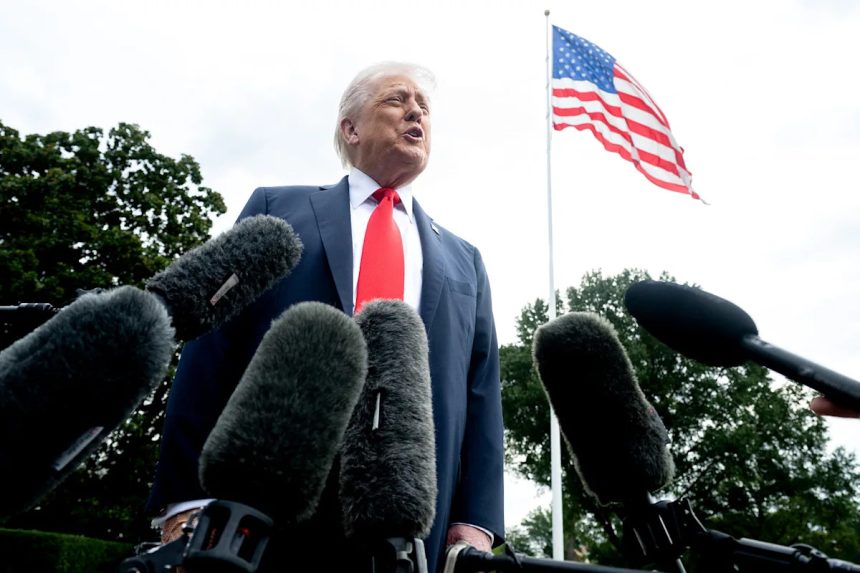When Republicans complain about Donald Trump’s critics on the left using intemperate rhetoric, they often point to the frequency with which the president’s detractors accuse him of being an “authoritarian.” The complaints, however, tend to miss the point: The problem is with Trump’s actions, not with his opponents noticing those actions.
And then, every once in a while, the president has a day — a single 24-hour period — in which his actions bring into sharp focus just how authoritarian his agenda actually is. Consider this unsettling timeline:
Monday, Sept. 15, in the afternoon: Trump told reporters about his plans to target progressive organizations, adding that he’d already spoken to Attorney General Pam Bondi about bringing racketeering charges against “some of the people you’ve been reading about.” The New York Times noted soon after, “President Trump has begun a major escalation in his long-running efforts to stifle political opposition in the United States.”
Monday, Sept. 15, in the afternoon: Trump boasted about his latest deadly military strike against a civilian boat in international waters, which he claimed was helmed by “narcoterrorists” and carrying “illegal narcotics” headed to the U.S. Asked to bolster his claim with evidence, or to explain how such strikes are legal, the president declined.
Monday, Sept. 15, in the afternoon: Responding to a conservative reporter who said that anti-war protesters near the White House “still have their First Amendment right,” Trump replied, “Yeah, well, I’m not so sure.”
Monday, Sept. 15, in the evening: Trump bragged about having filed a $15 billion lawsuit against The New York Times, accusing the newspaper of attempting to ruin his reputation by publishing reports he didn’t like. It is the latest in a series of civil suits he’s filed against independent news organizations that have bothered him with accurate reporting.
Tuesday, Sept. 16, in the morning: Asked about his efforts to profit from the presidency, Trump threatened to report an Australian journalist to his country’s authorities.
Tuesday, Sept. 16, in the morning: Trump told ABC News’ Jonathan Karl that the Justice Department will “probably” go after him and his network, suggesting the reporter’s coverage might meet the threshold for “hate speech.”
Tuesday, Sept. 16, in the morning: Trump called for the incarceration of a prosecutor in Georgia who tried to hold him accountable for alleged crimes after his 2020 election defeat.
Tuesday, Sept. 16, in the afternoon: Trump boasted to reporters that U.S. naval forces, acting on his orders, had “knocked off” a third civilian boat in international waters.
Tuesday, Sept. 16, in the afternoon: Trump announced that he would continue to refuse to enforce a federal law related to TikTok.
Individually, each of these developments is unsettling to those who take democracy seriously, but don’t miss the forest for the trees: These aren’t just disconcerting anecdotes, they’re collectively one dramatic story about a president and an administration that’s increasingly overt in their indifference to American democracy and the rule of law.
What’s more, this 24-hour period wasn’t especially unusual. Over the last eight months, Americans have seen a great many days just like this one.
Alas, there’s every reason to believe there will be many more, too.
This post updates our related earlier coverage.
This article was originally published on MSNBC.com







